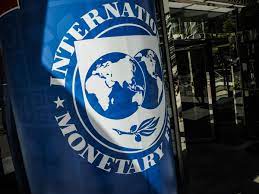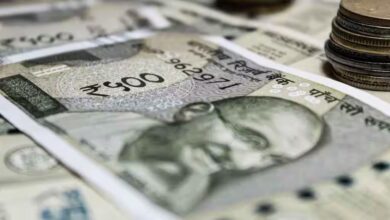Report: Pakistan Guarantees IMF $8 Billion in External Payments
Cash-strapped According to a media source on Saturday, Pakistan has sent the IMF a financing plan for foreign payments in which it informs the global lender that it would arrange USD 8 billion for the purpose instead of USD 6 billion.
After months of talks that brought Pakistan dangerously close to default, the government and the International Monetary Fund (IMF) finally came to a long-awaited staff-level agreement on June 29 to infuse USD 3 billion Standby Arrangement (SBA) into the failing economy.
On July 12, the IMF’s Executive Board will meet to discuss the SBA for Pakistan.
The IMF requested Pakistan provide guarantees of USD 6 billion for foreign payments, according to sources in the finance ministry, The Express Tribune daily said.
The sources did note that Pakistan had promised the IMF that it would make foreign payments totaling USD 8 billion.
According to the sources, China would provide Pakistan USD 3.5 billion, of which Islamabad would hold USD 2 billion in deposits and USD 1.5 billion would come from Beijing’s commercial banks.
In addition, Pakistan would get funding from Saudi Arabia and the UAE totaling USD 2 billion and USD 1 billion, respectively.
In addition to the USD 250 million from the Asian Infrastructure Investment Bank, Pakistan will also get USD 500 million from the World Bank.
The USD 350 million committed at the Geneva Conference, according to the finance ministry officials, would also go to Pakistan.
In the first three months of the current fiscal year, the government aims to raise a record-high amount of debt financing from domestic commercial and Shariah-compliant banks, totaling Rs. 11.10 trillion.
The money will mostly be utilized to cover the significant budget deficit and retire maturing existing debt.
The government has set record-high domestic borrowing goals for the third consecutive month, showing a strong dependence on debt to pay for planned expenses.
This strategy poses questions, too, since the debt has grown to unmanageable levels on both the domestic and international fronts and need restructuring.
The government must either enhance income collection or cut down on non-development spending, such as trimming legislative budgets and wasteful spending, to solve the issue.
Provisional revenue collection for the preceding fiscal year was Rs 7.14 trillion, which was less than the planned amount of Rs 7.64 trillion.
The interest on the total debt is the government’s second-largest expense after debt repayments. This limits the government’s ability to implement development initiatives and provide employment opportunities.
The Bank of America Securities claims that Pakistan is experiencing a severe liquidity problem in its debt management, directly jeopardizing the country’s entire financial viability.
According to the newspaper, the budget parameters for the fiscal year 2023–24 show that debt service expenses alone surpass Rs7.3 trillion (USD 25.6 billion), accounting for half of the whole budget expenditures and around 80% of the anticipated tax income for the nation.







